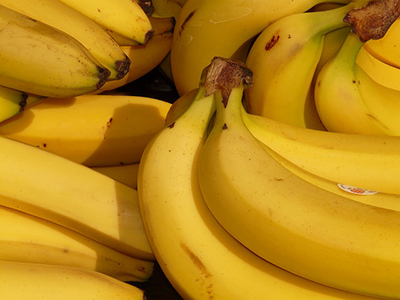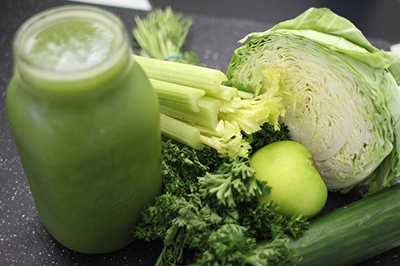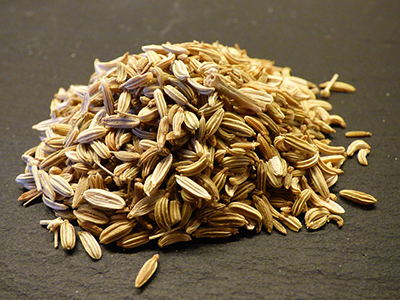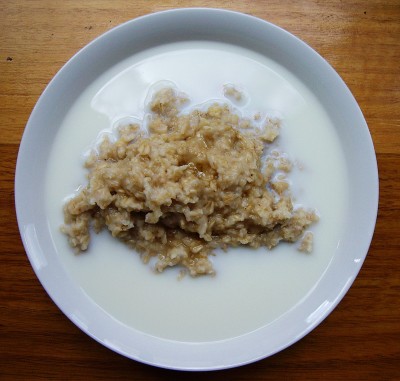Home Remedies for Irritable Bowel Syndrome
Irritable bowel syndrome (IBS) is a gastrointestinal disorder characterized by irregularity in the movements of the small and large intestines. Also called spastic colon and mucous colitis, IBS is one of the most commonly diagnosed digestive disorders, affecting approximately one in five Americans over 20. Some of the most common symptoms of IBS are diarrhea or constipation, bloating, gas, mucus in the stool, nausea, headache, fatigue, and abdominal cramping and pain.
While the symptoms can be uncomfortable and embarrassing to those suffering from IBS, it can be a tricky condition to treat, as the exact causes of the disorder are largely unknown. However, there are a number of natural and herbal dietary remedies that you can take to ease and control the symptoms of IBS, we will focus on 10 simple things you can do in this article. First, however, we should focus on a few big “don’ts”, that is, things that you should avoid as they are known to contribute to aggravating the symptoms of IBS.
- Inhibiting IBS:
Don’t become discouraged.
Stress, anxiety, anger, and other strong emotions are known triggers of IBS flare-ups. If you suffer from IBS it is extremely important that you learn to manage stress and anxiety. Meditation, yoga, and simple breathing exercises when you are upset are all recommended ways to help control IBS. - Don’t abuse your intestines.
You can help limit the effects of IBS on your body by limiting your intake of fried foods, oils, and fatty meats and dairy products. It is also recommended to stay away from spicy foods, as the capsaicin in hot peppers can cause spasms in the large intestines and trigger diarrhea. Those with IBS should also avoid foods that cause or increase flatulence, such as beans, broccoli, and Brussels sprouts. - Don’t chew gum or eat candy with artificial sweeteners.
Common sweeteners in some of these products like sorbitol and mannitol can actually have a laxative effect on the body. These sweeteners are difficult for the body to break down and often make it all the way through your system to your colon before they are broken down as non-absorbed sugars. When broken down in the colon, these sweeteners can trigger gas and diarrhea. - Don’t overuse caffeinated or alcoholic drinks. Both of these can trigger a number of digestive issues in the intestines, worsening the effects of IBS.
- Don’t smoke.
Nicotine is a major contributor to IBS flare-ups. Plus when you smoke, you tend to swallow air, and people with IBS are especially sensitive to excess air in the gut.
Treating IBS:
Now that we’ve gone through a few of the things to not do or ingest if you suffer from IBS, we can focus on things you should do. Following is a list of 10 alphabetically arranged natural remedies for the troublesome symptoms of this disorder.
1. Bananas

Fresh bananas are not only delicious and nutritious, they are also an effective reliever of IBS symptoms. The soluble fiber in bananas helps absorb excess liquid in the intestines while the potassium content helps to relieve bloating and gas.
To maintain a healthy digestive system and help prevent IBS, simply eat 1-2 bananas a day.
If you are suffering from IBS, particularly diarrhea, mash a ripe banana and mix in a teaspoon of tamarind pulp and a pinch of salt. Eat the mash twice daily until diarrhea is gone.
2. Cabbage Juice

*Not recommended for those who experience flatulence or bloating as symptoms of their IBS*
Cabbage juice is a very effective remedy for IBS sufferers experiencing constipation. The natural sulfur and chlorine in cabbage juice can have a deep cleansing effect on the mucus membranes of the stomach and intestines. A natural laxative, cabbage juice can also help soften stool, making bowel movements easier to pass.
To make fresh cabbage juice, cut a freshly washed cabbage into small pieces and either run through a juicer or a blender. If using a blender, strain the juice, and drink a half of a glass 3-4 times a day. This treatment is most effective if used as soon as constipation starts.
3. Carrots

Carrots can be a wonderful and gentle way to help treat diarrhea and constipation. As a good source of pectin, they also can help maintain a healthy digestive system and prevent the onset of IBS symptoms.
To make a fresh anti-IBS carrot juice blend, put a few carrots through a juicer and add a few drops of lemon juice and honey. Drink about 8 ounces twice a day until symptoms improve.
You can also make a puree with soft, cooked carrots processed in a blender with a little water and a pinch of salt. Eat a half of a cup of carrot puree several times a day for best results.
4. Chamomile

The high tannin content combined with the anti-inflammatory and antispasmodic properties of chamomile can work wonders on the symptoms of IBS!
For best results, put 2-3 teaspoons of dried chamomile in a cup of boiling water and allow to steep for about 15 minutes. Strain the mixture into a mug and add a little lemon juice and honey to taste if desired. Drink this tea 3 times a day for a healthier gastrointestinal tract.
5. Fennel Seeds

A favorite component in my cooking, fennel seeds can be a huge help in battling IBS symptoms. Fennel relieves intestinal spasms and bloating and also plays a key role in eliminating excess fats from the digestive system which helps limit the overproduction of mucus in the intestines that contributes to IBS.
To take advantage of the benefits of fennel seeds, you can make a tea by adding ½ to 1 teaspoon of crushed fennel seeds to a cup of boiling water. Steep for 10 minutes and then strain and drink. This zesty herbal tea can be consumed 2-3 times daily to prevent and treat IBS symptoms.
Alternately, combine a half teaspoon of dry roasted fennel seed powder with warm water and drink twice daily.
6. Flaxseed

Constipation and diarrhea can be treated with flaxseed. A good source of dietary fiber which helps regulate the passage of waste, flaxseed also provides a healthy source of omega-3 fatty acids that support healthy digestion and immune response.
The simplest way to get the benefits of flaxseed, simply mix a tablespoon of freshly ground flaxseed with water and drink once daily.
Another way to take this is to add a teaspoon of flaxseed to a cup of boiling water and allow to steep for 5-10 minutes. Drink this tea daily before bed to keep your stomach clean and flatulence free.
Alternately, mix a tablespoon of flaxseed in a glass of water and allow to rest for 2-3 hours. Drink the water just before bed to promote consistent bowel movements.
7. Ginger

Used for centuries in Asia to promote healthy digestion, ginger is increasingly being recommended as a treatment for IBS. Ginger can reduce gas and bloating as well as reducing inflammation in the intestines and helping to relax the muscles that can cause irregularity in intestinal activity.
For a simple tea, add a half teaspoon of freshly grated ginger to a cup of hot water and allow it to steep for 10 minutes. Strain the ginger out, add honey to taste and drink the tea. This mixture can be consumed 2-3 times daily and will be a huge help in easing abdominal cramping and pain.
Alternately, grate a small piece of ginger and eat it with a teaspoon of honey before a meal. If eaten twice daily, this mixture will cure and prevent diarrhea as well as improve overall digestive health.
*If suffering from high blood pressure, ginger should not be used as a treatment for IBS.*
8. Oat Bran

A healthy amount of fiber in your diet is nearly magical in overcoming the symptoms of IBS. Oat bran is a great source of that fiber, which can help your body soften and pass stool easily as well as providing protein, antioxidants, calcium, iron, thiamin, phosphorous, riboflavin, magnesium and zinc.
To tap into the benefits of oat bran, you can simply add a tablespoon to your morning breakfast cereal.
Another method is to mix one part of oat bran with two parts water and microwave for a few minutes and eat like oatmeal.
Yet another way to reap the benefits of oat bran is to add a tablespoon to your yogurt, smoothie, or salad.
*note* when first adding oat bran to your diet, you may experience an increase in bloating and gas… these symptoms will decrease as your body adjusts naturally.
9. Peppermint

According to a recent scientific study, peppermint is an effective treatment against IBS symptoms like cramping, bloating, and diarrhea, and when used in conjunction with fiber, can also have an antispasmodic effect on the intestines for IBS sufferers.
Peppermint contains menthol oil which acts as an antispasmodic on the smooth muscles of the digestive tract. This helps relieve bloating, gas pain, and intestinal spasms. Plus, peppermint can help food pass through the stomach easily.
To utilize the perks of peppermint, try adding 2-3 drops of peppermint oil to a cup of warm water and drinking 3-4 times daily until symptoms improve.
Another method is to add a teaspoon of dried peppermint to a cup of boiling water and allow to steep for about 10 minutes. Drain and drink this tea 2-3 times daily.
Alternately, you can buy and take enteric coated peppermint oil capsules which are specifically designed to treat the intestines rather than breaking down in the stomach. 1-2 capsules 3 times a day is the common recommended dosage.
*note* in excess, peppermint can be known to cause nausea, loss of appetite, as well as heart and nervous system issues so consult a doctor for specific dosing recommendations.
10. Yogurt

Last alphabetically, but certainly not least, is yogurt. The live cultures in yogurt is a popular and long-standing treatment for IBS diarrhea and irregularity. Live cultures are bacteria that naturally provide an extra layer of protection in the intestines and help generate lactic acid to help flush bacterial toxins from the body.
To use yogurt to its greatest potential, you can eat it or drink a yogurt smoothie several times a day until you see improvement in IBS symptoms.
Alternately, you can mix a half-teaspoon of psyllium husks (available at most drug stores) and a cup of yogurt and eat the mixture an hour after lunch and dinner to boost the benefit.
As with starting any new health benefit, its essential that you consult your doctor before beginning any of these new IBS treatments, particularly if you also suffer from other health issues. However these suggestions, as well as a healthy diet and lifestyle can be a huge help in eliminating the ill effects of IBS!
 Home and Gardening Ideas At home and Gardening ideas we believe inspiring readers about homesteading, self sufficiency
Home and Gardening Ideas At home and Gardening ideas we believe inspiring readers about homesteading, self sufficiency






